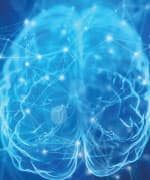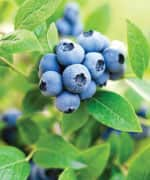Life Extension Magazine®
Sage is an herb being studied for its brain-boosting effects in human adults.1

But not all sage is the same.
European scientists have identified a form of sage with benefits that go beyond traditional sage extracts.
In one clinical study, healthy, older adults taking this sage extract had an approximate 60% better performance in a composite measure of memory, compared to those who received placebo.
This study also demonstrated an approximate 2.5-fold enhanced performance in a composite measure of attention.2
These improvements were noted within hours of taking the extract.2
Fighting Alzheimer’s Disease

Sage inhibits an enzyme in the brain called acetylcholinesterase.2 This enzyme breaks down acetylcholine, which is a neurotransmitter responsible for memory and motor control.
Sage can also act on proteins used in the creation and repair of brain cells called neurotrophins.3-5
Circulating levels of one neurotrophin, brain-derived neurotrophic factor, are reduced in those with Alzheimer’s disease. An active component of sage (rosmarinic acid), prevented reductions in brain-derived neurotrophic factor in animal studies.6
Lab experiments have shown that rosmarinic acid increases brain-derived neurotrophic factor levels in crucial non-neuronal cells in the brain and spinal cord.6
In a clinical trial, patients with mild-to-moderate Alzheimer’s disease were randomized to receive either sage extract or a placebo. Patients were assessed by a neurologist at baseline and throughout the study.7
After four months of treatment, those who received sage had significantly better scores than the placebo group on two scales used to assess cognitive function.
Brain Benefits for Adults
As we age, our cognitive function tends to decline, even without having dementia.
A clinical study enlisted healthy, older adults to study the effects of sage on their cognitive function. Compared to a placebo, those taking the sage extract had an approximate 60% better performance in a composite measure of memory and an approximate 2.5-fold better performance in a composite measure of attention.2
That improvement was noted just hours after taking the sage extract.
Anti-Aging Potential

Sage has demonstrated impressive results in recent preclinical studies that suggest it could increase lifespan and delay symptoms of aging in humans.
C. elegans is a type of roundworm used to study longevity due to its relative short lifespan.
In one study, worms exposed to a sage extract had an average 12% increase in lifespan.8
Summary
Sage has demonstrated an impressive ability to improve measures of memory and attention in older adults.
Preclinical research suggests that it also has potential to boost longevity and delay symptoms of aging.
Taken with other neuroprotective nutrients, such as phosphatidylserine, blueberry, vinpocetine, pregnenolone, and ashwagandha, it can be part of a comprehensive approach to cognitive and brain health.
If you have any questions on the scientific content of this article, please call a Life Extension® Wellness Specialist at 1-866-864-3027.
What you need to know
Sage’s Impact on the Brain
- Sage has been recognized for its numerous health benefits for centuries.
- European researchers have identified a unique form of sage that improves cognitive function. One clinical trial showed that healthy older adults taking sage extract had an approximate 60% better performance in a composite measure of memory and an approximate 2.5-fold better performance in a composite measure of attention, compared to placebo.2
- Preclinical studies show that sage may increase lifespan.8
- Sage extract can help support brain health, especially if taken with other supplements with proven brain benefits.
Other Nutrients for Brain Health
Sage extract is just one of several nutrients known to protect and enhance brain health. Taking it with others that complement its activity may maximize cognitive benefits.
Phosphatidylserine
Phosphatidylserine is a phospholipid component of nerve cell membranes and the myelin sheath that covers and protects nerve cells, including brain cells. The myelin sheath supports the conduction of nerve impulses throughout the nervous system.11-13
Taking phosphatidylserine can help preserve cognitive function and may reduce the structural deterioration in the nervous system that occurs with age. In studies, people who took it scored higher on short-term memory and concentration tests.13
Blueberry

Blueberries are packed with anthocyanins, powerful compounds present in a variety of fruits and vegetables. Anthocyanins exert a broad range of health-promoting effects, including defense against oxidative stress, as well as modulation of gene expression and cell-signaling pathways.14
Recent human trials have demonstrated that blueberries improve memory and other aspects of cognitive performance in older subjects, and boost mood and cognition in children and young adults.15-19
Vinpocetine
Vinpocetine, a compound derived from the periwinkle plant, has been reported to have benefits for cognition and degenerative disorders of the brain, such as Alzheimer’s and Parkinson’s diseases.
Vinpocetine helps to dilate (widen) blood vessels to the brain, improving blood flow and stimulating brain metabolism.20
Pregnenolone
Studies in animals and humans have shown that pregnenolone, a hormone produced by the adrenal gland, appears to be a neuroprotectant, defending the brain from various forms of injury.21,22
It has also been found to have positive effects on mood, memory, and other aspects of cognition.23
Ashwagandha
Ashwagandha is an Indian herb, also referred to as “Indian ginseng.” It has been used in traditional Indian medicine as a nerve tonic for thousands of years.
In modern research, ashwagandha has demonstrated neuroprotective effects and supplementation has resulted in improvements in mood and cognition.24,25 One study in patients suffering from mild cognitive impairment found that ashwagandha intake led to improvements in memory, attention, and decision making.24
Unique Form of Sage

A group of European scientists has identified a specific form of sage with benefits that go beyond traditional sage extracts.
This sage extract has a unique chemical fingerprint,9 one distinctively suited to support brain function.
In a preclinical analytic study, this proprietary sage extract showed superior effects to other sage and cognitive drugs.8,10
In addition, this proprietary sage extract increased the expression of genes associated with insulin signaling and lipid metabolism, which are both associated with enhanced longevity.8,10
References
- Lopresti AL. Salvia (Sage): A Review of its Potential Cognitive-Enhancing and Protective Effects. Drugs in R&D. 2017;17(1):53-64.
- Scholey AB, Tildesley NT, Ballard CG, et al. An extract of Salvia (sage) with anticholinesterase properties improves memory and attention in healthy older volunteers. Psychopharmacology (Berl). 2008 May;198(1):127-39.
- Huang EJ, Reichardt LF. Neurotrophins: roles in neuronal development and function. Annu Rev Neurosci. 2001;24:677-736.
- Erickson KI, Prakash RS, Voss MW, et al. Brain-derived neurotrophic factor is associated with age-related decline in hippocampal volume. J Neurosci. 2010 Apr 14;30(15):5368-75.
- Hasanein P, Felehgari Z, Emamjomeh A. Preventive effects of Salvia officinalis L. against learning and memory deficit induced by diabetes in rats: Possible hypoglycaemic and antioxidant mechanisms. Neurosci Lett. 2016 May 27;622:72-7.
- Lopresti AL. Salvia (Sage): A Review of its Potential Cognitive-Enhancing and Protective Effects. Drugs R D. 2017 Mar;17(1):53-64.
- Akhondzadeh S, Noroozian M, Mohammadi M, et al. Salvia officinalis extract in the treatment of patients with mild to moderate Alzheimer’s disease: a double blind, randomized and placebo-controlled trial. J Clin Pharm Ther. 2003 Feb;28(1):53-9.
- Confidential S. Chronoscreen. 2016.
- Confidential S. Sibelius cognition enhancement product presentation. 2018.
- Confidential S. Sage Gene Expression Analysis. 2018.
- Available at: https://www.ncbi.nlm.nih.gov/books/NBK27954/. Accessed April 1, 2021.
- Available at: https://www.drugbank.ca/drugs/DB00144. Accessed April 1, 2021.
- Glade MJ, Smith K. Phosphatidylserine and the human brain. Nutrition. 2015 Jun;31(6):781-6.
- Burton-Freeman B, Sandhu A, Edirisinghe I. Anthocyanins. In: Gupta RC, ed. Nutraceuticals. Boston: Academic Press; 2016:489-500.
- Khalid S, Barfoot KL, May G, et al. Effects of Acute Blueberry Flavonoids on Mood in Children and Young Adults. Nutrients. 2017 Feb 20;9(2).
- Whyte AR, Schafer G, Williams CM. Cognitive effects following acute wild blueberry supplementation in 7- to 10-year-old children. Eur J Nutr. 2016 Sep;55(6):2151-62.
- Miller MG, Hamilton DA, Joseph JA, et al. Dietary blueberry improves cognition among older adults in a randomized, double-blind, placebo-controlled trial. Eur J Nutr. 2018 Apr;57(3):1169-80.
- McNamara RK, Kalt W, Shidler MD, et al. Cognitive response to fish oil, blueberry, and combined supplementation in older adults with subjective cognitive impairment. Neurobiol Aging. 2018 Apr;64:147-56.
- Whyte AR, Cheng N, Fromentin E, et al. A Randomized, Double-Blinded, Placebo-Controlled Study to Compare the Safety and Efficacy of Low Dose Enhanced Wild Blueberry Powder and Wild Blueberry Extract (ThinkBlue) in Maintenance of Episodic and Working Memory in Older Adults. Nutrients. 2018 May 23;10(6).
- Zhang YS, Li JD, Yan C. An update on vinpocetine: New discoveries and clinical implications. Eur J Pharmacol. 2018 Jan 15;819:30-4.
- Veiga S, Garcia-Segura LM, Azcoitia I. Neuroprotection by the steroids pregnenolone and dehydroepiandrosterone is mediated by the enzyme aromatase. J Neurobiol. 2003 Sep 15;56(4):398-406.
- Borowicz KK, Piskorska B, Banach M, et al. Neuroprotective actions of neurosteroids. Front Endocrinol (Lausanne). 2011;2:50.
- Vallee M. Neurosteroids and potential therapeutics: Focus on pregnenolone. J Steroid Biochem Mol Biol. 2016 Jun;160:78-87.
- Choudhary D, Bhattacharyya S, Bose S. Efficacy and Safety of Ashwagandha (Withania somnifera (L.) Dunal) Root Extract in Improving Memory and Cognitive Functions. J Diet Suppl. 2017 Nov 2;14(6):599-612.
- Singh N, Bhalla M, de Jager P, et al. An overview on ashwagandha: a Rasayana (rejuvenator) of Ayurveda. Afr J Tradit Complement Altern Med. 2011;8(5 Suppl):208-13.

